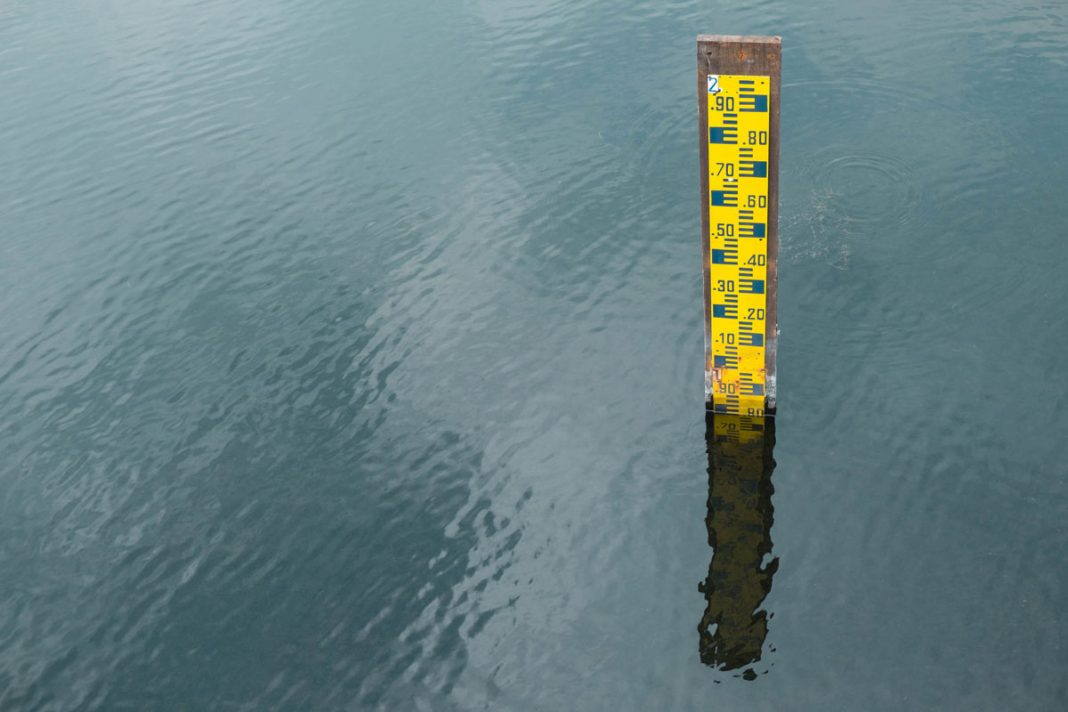LAKE HURON – With the unseasonably high water levels of last fall, the Northeast Town saw the writing on the wall for the 2020 season to come and applied for climate adaptation funds for its downtown docks from FedNor for which they received approval this month. This news couldn’t have come sooner for the municipality as Lake Huron continues to break record highs with each passing month of this new year.
“Certainly, water levels are high,” Frank Seglenieks, water resources engineer with Environment Canada, said in a Thursday interview. “Unlike last year where other Great Lakes hit records, Lakes Michigan-Huron didn’t.”
Lake Huron was eight centimetres above the record high in January, 14 centimetres above the record high in February and eight centimetres above the record high in March.
Lake Huron is “a full 90 centimetres above average—that is pretty crazy,” Mr. Seglenieks admits.
“Moving forward, this is when we typically see a rise,” he continued. “If we see our typical rise, from now to mid-summer, we will be in record territory.”
Mr. Seglenieks said a ‘typical rise’ is between 25 and 30 centimetres, but that all depends on the amount of precipitation Lake Huron will see between now and June.
He noted that snow was “relatively average” for Lakes Michigan-Huron this year, but due to warmer temperatures, precipitation often fell in the form of rain, which helped to raise levels over the winter months.
Mr. Seglenieks said he and his fellow Environment Canada engineers are concerned about what is yet to come.
“We’re trying to get the word out that people should be prepared, especially during high winds. High water, combined with storm events, can mean increased flooding and erosion.”
Mr. Seglenieks said Environment Canada has been reaching out to regional conservation authorities, those with “boots on the ground,” to help spread the word.
On Manitoulin, the “boots on the ground” organization is Manitoulin Streams whose project manager Seija Deschenes offered some advice for Islanders on dealing with high water.
“Manitoulin Streams would like for people to be aware of the higher water levels especially as families are trying to get outdoors during self-isolation,” Ms. Deschenes told The Expositor. “Higher water levels may cause additional erosion along the river banks or shorelines and we wouldn’t want anyone slipping into the cold water.”
“Higher water levels and stresses put on our local watersheds from climate change reinforces that our restoration work is extremely important,” she continued. “We appreciate the continued community support toward our restoration efforts. A lot of spawning occurs during in the spring (rainbow trout, walleye, etc.). Preventing erosion and sedimentation from occurring over critical spawning grounds is important otherwise the sediment will cover the fish eggs and could impact their survivability.”
Ms. Deschenes offered the following tips for those looking at ways to help prevent erosion from occurring along their waterfront properties: “We would suggest planting trees or shrubs along the shoreline so that the roots take hold and keep the soil in place. The trees are also great at absorbing nutrients (phosphorus, nitrogen, potassium etc.) before it enters the water system.”
In the Northeast Town, council approved FedNor funding of $196,500 to allow dockage to continue at its downtown Little Current piers.
The climate adaptation funds will be used to raise the dock at the weir to accommodate cruise ship tenders (although the municipality does not expect any this year because of the COVID-19 pandemic), raise the dock in front of Wally’s Dock Service (on the downtown dock) for fuel service, purchase pedestals and upgrade the electrical to accommodate high water, install new ramps for all five finger docks, and place stone along the dock edge to control wave action and prevent erosion.




